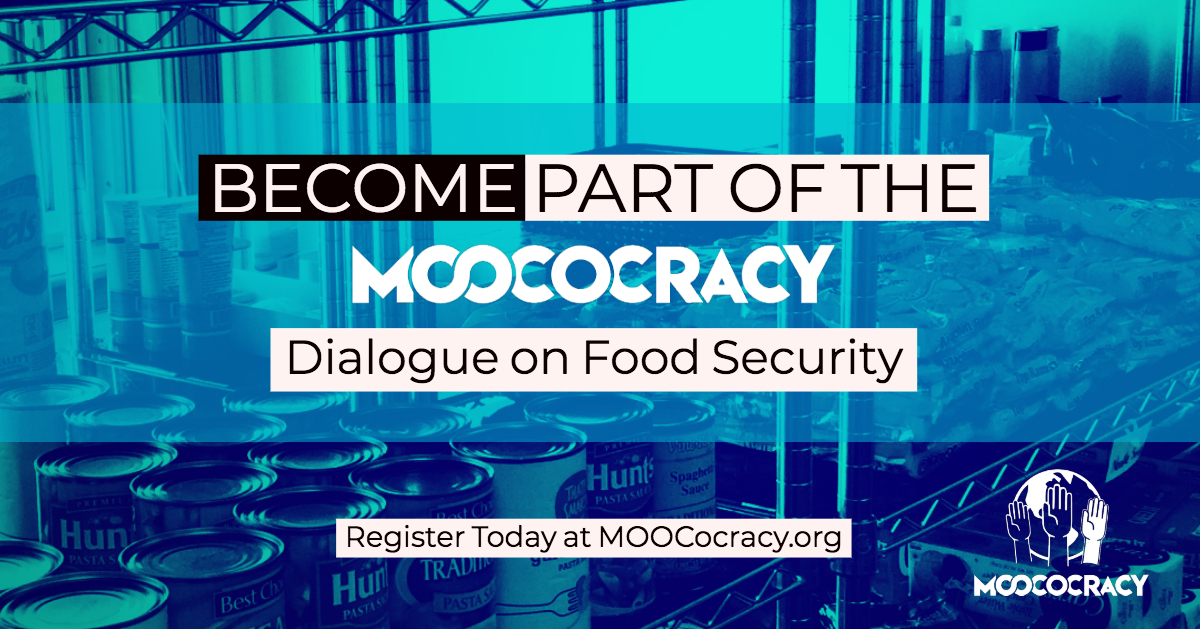
As the need to provide public education about food insecurity grows, citizens are increasingly turning to the Internet for information about critical issues impacting their communities, the nation, and the world. Social networks, distance education courses, and Massive Open Online Courses (MOOCs) are connecting thousands of people from around the globe about social issues. Through this team’s combined expertise and research, we see a promising possibility for MOOCs to not only deliver instruction about food for health topics, but to also actively engage learners to critically evaluate all sides of issues through deliberative discussion weighing the pros and cons, as well as co-construct knowledge and social efforts to improve issues such as food insecurity.
We propose that the facilitation of bottom-up, deliberative, public engagement and activation through a MOOCocracy (Massive, Open, Online, Collaborative social learning democracy) platform could fulfill such a purpose by connecting diverse adult learners and enhancing their discourse, reflective learning, and community engagement around food insecurity issues. The Public Policy Center is aiding in the development of online computer technologies that could be used to take advantage of existing MOOC learner tendencies explicitly building upon, harnessing, and transforming them for purposes that go beyond learning, thereby re-casting or extending MOOCs as MOOCocracies—i.e., contexts for democratic deliberation, informed decision-making, and mobilization, rather than as purely educational tools. Lisa PytlikZillig contributed her expertise in educational psychology, social psychology, and institutional trust to the MOOCocracy design, public trust and educational psychology research, and extramural funding proposals.
Read more at moococracy.org
